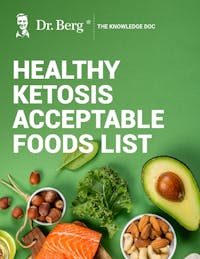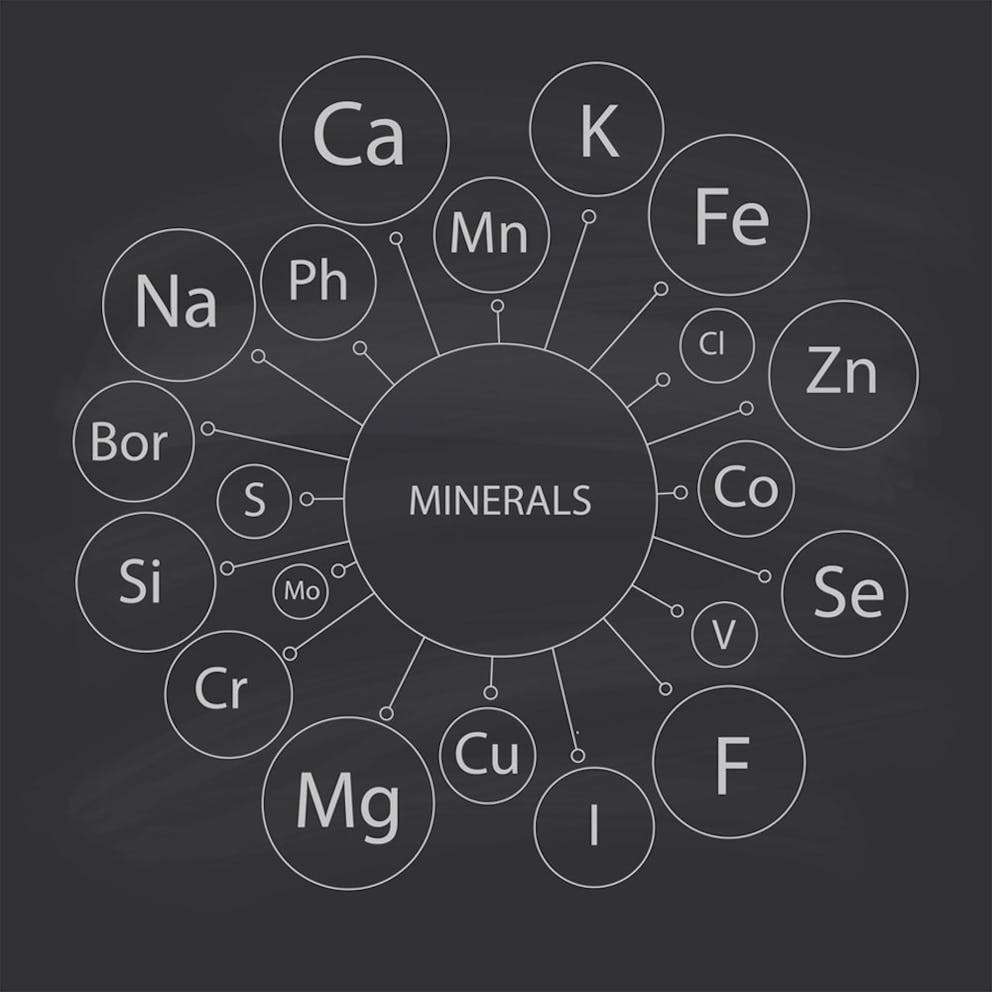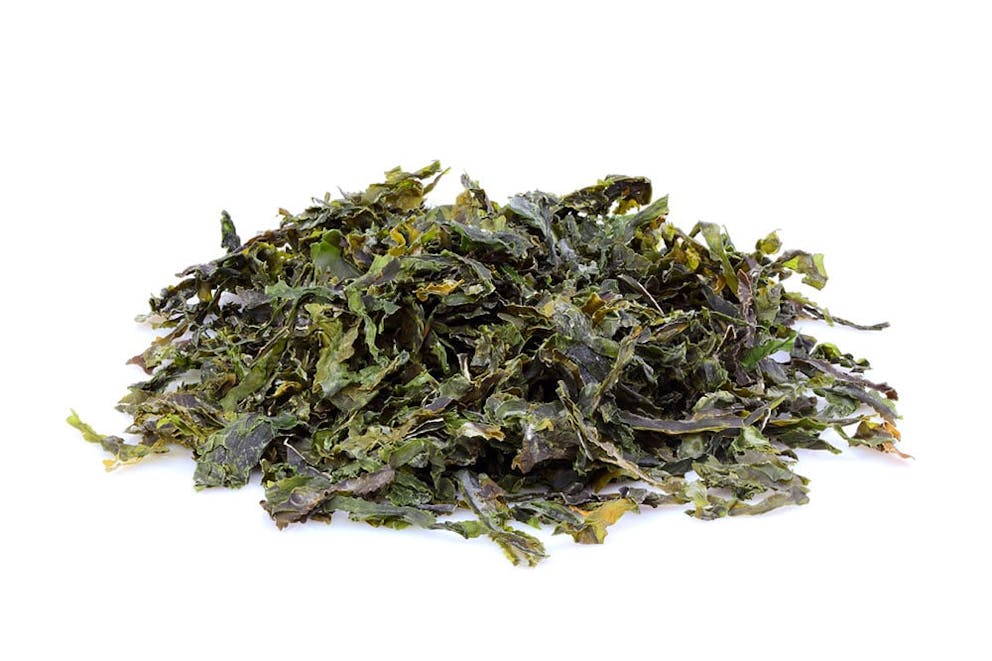The Benefits of Roasted Seaweed

Healthy Keto Acceptable Foods List
Explore a comprehensive list of foods and beverages that align with Healthy Keto®
Identify which foods support fat-burning and metabolic health
Discover nutritious options for fats, proteins, and vegetables to support your health goals
Learn about common foods that aren’t Healthy Keto-approved

Healthy Keto Acceptable Foods List
Explore a comprehensive list of foods and beverages that align with Healthy Keto®
Identify which foods support fat-burning and metabolic health
Discover nutritious options for fats, proteins, and vegetables to support your health goals
Learn about common foods that aren’t Healthy Keto-approved

Healthy Keto Acceptable Foods List
Explore a comprehensive list of foods and beverages that align with Healthy Keto®
Identify which foods support fat-burning and metabolic health
Discover nutritious options for fats, proteins, and vegetables to support your health goals
Learn about common foods that aren’t Healthy Keto-approved

Healthy Keto Acceptable Foods List
Explore a comprehensive list of foods and beverages that align with Healthy Keto®
Identify which foods support fat-burning and metabolic health
Discover nutritious options for fats, proteins, and vegetables to support your health goals
Learn about common foods that aren’t Healthy Keto-approved

Healthy Keto Acceptable Foods List
Explore a comprehensive list of foods and beverages that align with Healthy Keto®
Identify which foods support fat-burning and metabolic health
Discover nutritious options for fats, proteins, and vegetables to support your health goals
Learn about common foods that aren’t Healthy Keto-approved

Healthy Keto Acceptable Foods List
Explore a comprehensive list of foods and beverages that align with Healthy Keto®
Identify which foods support fat-burning and metabolic health
Discover nutritious options for fats, proteins, and vegetables to support your health goals
Learn about common foods that aren’t Healthy Keto-approved

Healthy Keto Acceptable Foods List
Explore a comprehensive list of foods and beverages that align with Healthy Keto®
Identify which foods support fat-burning and metabolic health
Discover nutritious options for fats, proteins, and vegetables to support your health goals
Learn about common foods that aren’t Healthy Keto-approved

Healthy Keto Acceptable Foods List
Explore a comprehensive list of foods and beverages that align with Healthy Keto®
Identify which foods support fat-burning and metabolic health
Discover nutritious options for fats, proteins, and vegetables to support your health goals
Learn about common foods that aren’t Healthy Keto-approved

Healthy Keto Acceptable Foods List
Explore a comprehensive list of foods and beverages that align with Healthy Keto®
Identify which foods support fat-burning and metabolic health
Discover nutritious options for fats, proteins, and vegetables to support your health goals
Learn about common foods that aren’t Healthy Keto-approved

Healthy Keto Acceptable Foods List
Explore a comprehensive list of foods and beverages that align with Healthy Keto®
Identify which foods support fat-burning and metabolic health
Discover nutritious options for fats, proteins, and vegetables to support your health goals
Learn about common foods that aren’t Healthy Keto-approved

Healthy Keto Acceptable Foods List
Explore a comprehensive list of foods and beverages that align with Healthy Keto®
Identify which foods support fat-burning and metabolic health
Discover nutritious options for fats, proteins, and vegetables to support your health goals
Learn about common foods that aren’t Healthy Keto-approved

Healthy Keto Acceptable Foods List
Explore a comprehensive list of foods and beverages that align with Healthy Keto®
Identify which foods support fat-burning and metabolic health
Discover nutritious options for fats, proteins, and vegetables to support your health goals
Learn about common foods that aren’t Healthy Keto-approved

Healthy Keto Acceptable Foods List
Explore a comprehensive list of foods and beverages that align with Healthy Keto®
Identify which foods support fat-burning and metabolic health
Discover nutritious options for fats, proteins, and vegetables to support your health goals
Learn about common foods that aren’t Healthy Keto-approved

Healthy Keto Acceptable Foods List
Explore a comprehensive list of foods and beverages that align with Healthy Keto®
Identify which foods support fat-burning and metabolic health
Discover nutritious options for fats, proteins, and vegetables to support your health goals
Learn about common foods that aren’t Healthy Keto-approved

Healthy Keto Acceptable Foods List
Explore a comprehensive list of foods and beverages that align with Healthy Keto®
Identify which foods support fat-burning and metabolic health
Discover nutritious options for fats, proteins, and vegetables to support your health goals
Learn about common foods that aren’t Healthy Keto-approved

Healthy Keto Acceptable Foods List
Explore a comprehensive list of foods and beverages that align with Healthy Keto®
Identify which foods support fat-burning and metabolic health
Discover nutritious options for fats, proteins, and vegetables to support your health goals
Learn about common foods that aren’t Healthy Keto-approved

Healthy Keto Acceptable Foods List
Explore a comprehensive list of foods and beverages that align with Healthy Keto®
Identify which foods support fat-burning and metabolic health
Discover nutritious options for fats, proteins, and vegetables to support your health goals
Learn about common foods that aren’t Healthy Keto-approved

Healthy Keto Acceptable Foods List
Explore a comprehensive list of foods and beverages that align with Healthy Keto®
Identify which foods support fat-burning and metabolic health
Discover nutritious options for fats, proteins, and vegetables to support your health goals
Learn about common foods that aren’t Healthy Keto-approved

Healthy Keto Acceptable Foods List
Explore a comprehensive list of foods and beverages that align with Healthy Keto®
Identify which foods support fat-burning and metabolic health
Discover nutritious options for fats, proteins, and vegetables to support your health goals
Learn about common foods that aren’t Healthy Keto-approved
You've probably heard of seaweed being eaten in the form of sushi. But did you know that you can also eat roasted seaweed as a delicious, crunchy snack? I think this sea vegetable is a great, healthy treat that provides a really good amount of nutrition. Roasted seaweed benefits include being a great source of iodine, omega 3s, B vitamins, and so much more.
In this article, I will cover:

What is roasted seaweed?
Seaweed is a sea vegetable. This plant food grows in the ocean, where it can extract minerals and nutrients from the seawater. These get pulled into the plant, the plant converts them into forms our body can use easily, and then you consume the plant. That makes this food an easy way to get a lot of important things like trace minerals.
When it is roasted, it becomes a tasty snack or a nice addition to a meal. The roasting process dries out the seaweed, leaving it crispy, flavorful, and providing a good amount of nutrition. Nori is one example of a type of popular roasted seaweed.
These tasty and nutritious snacks can provide some really great health benefits for very little calories.
Roasted seaweed benefits
The major benefit of this plant-based food from the sea is that it is a really good source of many nutrients your body needs to stay healthy. These include:
1. Trace minerals
Getting your trace minerals is the top health benefit of eating seaweed. Some of the trace minerals you'll get are listed below.
Iodine. Iodine is a trace mineral that is very good for thyroid function. It is also good for helping to buffer too much estrogen in the body. This is important because many people are estrogen dominant. Also, there are many chemicals in our environment that mimic the effects of estrogen. Iodine can help counter those effects and keep things in balance.
Selenium. Selenium is great for autoimmune conditions like Hashimoto's disease. It is also a powerful antioxidant. And it helps to counter toxic heavy metals like mercury.
Zinc. Zinc is involved in over 2,000 enzymes in the body. It is important for digestion, brain function, and testosterone, to name just a few of its health benefits.
Iron. Iron's major role is to fortify red blood cells. You need iron to transport oxygen in your blood, make DNA, and so much more. Iron deficiency can lead to everything from fatigue to high heart rate to restless leg syndrome.

Along with these trace minerals, seaweed also provides other minerals such as potassium, magnesium, calcium, manganese, and more.
2. Vitamins
Another health benefit of seaweed is that it is a good source of vitamins. For example, roasted seaweed snacks contain vitamin C and B vitamins like vitamin B12 and folate.
3. Amino acids
Another roasted seaweed benefit is that it is rich in amino acids. Amino acids are the building blocks of proteins, which your body needs to build all of its structures. Providing your body these protein building blocks is essential for keeping everything functioning properly. Seaweed is a great plant-based source of amino acids and protein.
4. Omega-3 fatty acids DHA and EPA
Omega 3 fatty acids are essential fatty acids that our bodies need to perform a wide range of functions. If you are a vegetarian, seaweed is a great plant-based source of the omega 3s DHA and EPA. When you don't eat animal products and eat only plants, it is sometimes difficult to get enough of these. That's another reason why eating seaweed can come in handy, as it provides you with this key component of a healthy diet.

Tips for adding seaweed to your diet
As you can see, roasted seaweed is a very nutritional food with a long list of health benefits. It is a great addition to any healthy eating plan.
But many people are unfamiliar with this sea vegetable, and so they don't know what to look for or how to eat it.
Here are a few tips to keep in mind:
Try roasted seaweed snacks, which you can buy at most grocery stores or health food stores. They are crunchy little wafers you can use in place of chips or crackers for on-the-go eating.
Nori is a particular type of seaweed that is very popular and easy to add to your diet. It is the same kind of seaweed used to make sushi.
Aside from just snacking, try roasted seaweed as a topping for your meals. You can crumble it on top of salads, add it to soups, etc.
Look for clean, organic brands. Seaweed pulls things out of the water it grows in. This means that along with healthy nutrients, it can also pull out toxic things like heavy metals if the water it grows in isn't clean. So opt for a brand that comes from a clean environment.
If you have a small child, some seaweed is absolutely okay for them. Just don't overdo it. The minerals found in this sea plant are super concentrated, and can be too much for younger children if eaten in large amounts.
Consider a sea kelp supplement to get the nutritional benefits of seaweed every day.

Whether you eat it for its iodine content or for its unique flavor and texture, seaweed snacks like nori are well worth your while.
Do you eat healthy seaweed snacks or add this sea vegetable to your meals? Share your favorite ways to get more of this nutrient-packed option into your diet in the comments below.
Up Next:-
Disclaimer: Our educational content is not meant or intended for medical advice or treatment.
Editor’s Note: This post has been updated for quality and relevancy.
Previous blog
How to Fix the Swollen and Puffy Face and EyesNext blog
What Breaks a Fast?Tags

Popular
08/21/2024
55K views
02/23/2025
46.3K views
11/18/2024
277.5K views
03/18/2024
11/21/2022




